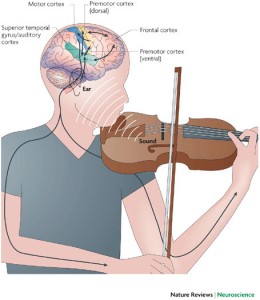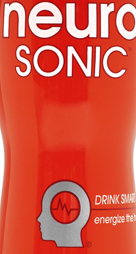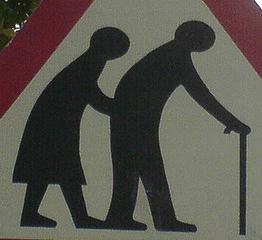 Being in a positive mood can speed learning, deepen creativity and otherwise improve our cognitive performance. So I am always on the lookout for scientific research on how to create and sustain positive moods. For example, at a recent meeting of the American Chemical Society, researchers reported:
Being in a positive mood can speed learning, deepen creativity and otherwise improve our cognitive performance. So I am always on the lookout for scientific research on how to create and sustain positive moods. For example, at a recent meeting of the American Chemical Society, researchers reported:
“The large body of evidence that chemicals in chocolate, blueberries, raspberries, strawberries, teas and certain foods could well be mood-enhancers encourages the search for other mood modulators in food,” noted Martinez-Mayorga”
We have reported on some of these foods before in the Next Brain Blog because there is evidence they boost brain function and cognitive performance directly. Some are new – teas, raspberries and strawberries. Interestingly, the active ingredient that seems to be doing the work is similar to the active ingredient (valproic acid) in prescription mood stabilizers such as Depakene, Depakote and Stavzor.
What techniques do you use to enhance and prolong productive moods?
Categories:
Diet, Manage Emotions Tags:
 The Kavli Foundation recently released a readable neuroscience research summary titled The Fantastic Plastic Brian. The report highlights the claim that adult brains remain adjustable even in the last years of life. Being adjustable (or plastic) means new neural connections can form and deep learning can take place. One example from the study:
The Kavli Foundation recently released a readable neuroscience research summary titled The Fantastic Plastic Brian. The report highlights the claim that adult brains remain adjustable even in the last years of life. Being adjustable (or plastic) means new neural connections can form and deep learning can take place. One example from the study:
I know a woman who didn’t begin to paint until she was in her 60’s, yet ended her life as a professional painter of high quality. We are capable of remarkable brain changes contributing to the development of remarkable new abilities at any stage of life.
This is an important finding. It means that not only are there natural cognitive advantages to aging (e.g. increased wisdom, emotional intelligence and learning from experience ability) it is possible to develop professional grade skills even in the most challenging domains.
I am interested to hear from readers that have develop new skills after 55 in art, science, engineering, technology, business, writing or another professional area.
 I get emails from parents interested in hearing about evidence-based ways to improve their children’s brain function and cognitive performance. So I am always on the lookout for scientific studies that suggest Next Brain development ideas for kids. That’s why a university study from Scotland caught my eye. Researchers there found that children speaking two languages (bilingual) can have more mental agility than those that don’t. More specifically:
I get emails from parents interested in hearing about evidence-based ways to improve their children’s brain function and cognitive performance. So I am always on the lookout for scientific studies that suggest Next Brain development ideas for kids. That’s why a university study from Scotland caught my eye. Researchers there found that children speaking two languages (bilingual) can have more mental agility than those that don’t. More specifically:
“Our study has found that it can have demonstrable benefits, not only in language but in arithmetic, problem solving and enabling children to think creatively. We also assessed the children’s vocabulary, not so much for their knowledge of words as their understanding of them. Again, there was a marked difference in the level of detail and richness in description from the bilingual pupils.”
The children in the study were around age nine and the bilinguals spoke Italian and English. It is important to note that they do not claim that learning a second language will produce these cognitive improvements. But is is suggestive.
Interested to hear from readers that live in a bilingual household or that have extensive second language experience. How does it enrich your language skills and thinking abilities?
 We have covered the importance of music for improving cognitive performance in several posts on the Next Brain Blog. Some researchers argue that learning to play a musical instrument is one of the best ways to improve and maintain brain function.
We have covered the importance of music for improving cognitive performance in several posts on the Next Brain Blog. Some researchers argue that learning to play a musical instrument is one of the best ways to improve and maintain brain function.
A new study, from Emory University supports this idea but provides some specifics:
“… musicians with at least 10 years of instrumental musical training remained cognitively sharp in advanced age.”
Even if subjects stopped playing at some point in life the positive effects linger as long as they played for at least 10 years. Through a decade of musical practice you build up a type of cognitive reserve that can be used later. As the article reports:
“This is an exciting finding in light of recent evidence suggesting that high educational levels are likely to yield cognitive reserve that may potentially delay the onset of Alzheimer’s symptoms or cognitive decline,…”
Ten years may seem like a large investment but developing a strong and resilient brain is a life-long process. Interested to hear from readers that have experience learning and playing a musical instrument. Are you building a cognitive reserve?
Source of Image: When Brain Plays Music
 Research led by the University of South Florida found elderly Chinese that practiced Tai Chi three times a week scored significantly higher on thinking and memory tests than a control group. They also demonstrate that the volume or physical size of the subject’s brain increased rather than experiencing age-related shrinkage.
Research led by the University of South Florida found elderly Chinese that practiced Tai Chi three times a week scored significantly higher on thinking and memory tests than a control group. They also demonstrate that the volume or physical size of the subject’s brain increased rather than experiencing age-related shrinkage.
This is an interesting finding because it suggests a non-areobic form of exercise can improve brain function.
Tai Chi is a type of martial arts. It includes five training elements the most widely known being the slow solo hand movements. The training emphasizes focusing your mind exclusively on the motion being practiced. This produces a meditative-like calm which might account for the brain boosting effects.
For more details on the brain health benefits and a video introduction check out the Next Brain Blog post on Tai Chi for Cognitive Training.
Source of Image: China on the brink
Learning during sleep is a long sought goal. Exciting new research from Northwestern University reveals that you can but there is a hitch. You can only strengthen existing memories not learn something new.
 They demonstrated the effect for learning to play a new tune. Subjects practiced learning two new tunes on a key board and then took a 90-minute nap. During the nap they were exposed to one tune but not the other. Upon awakening they committed fewer errors playing the tune they heard while sleeping.
They demonstrated the effect for learning to play a new tune. Subjects practiced learning two new tunes on a key board and then took a 90-minute nap. During the nap they were exposed to one tune but not the other. Upon awakening they committed fewer errors playing the tune they heard while sleeping.
The researcher speculate how this might be applied more broadly:
“If you were learning how to speak in a foreign language during the day, for example, and then tried to reactivate those memories during sleep, perhaps you might enhance your learning.”
I am interested to hear from readers that have experimented with learning during sleep. Did you learning any new?
 … or so claims the by-line for Neurosonic, a new energy drink tuned to enhance brain function and cognitive performance. These drinks go beyond caffeine, sugar and vitamins to include amino acids such as L-theanine and brain chemicals such as Phosphatidylserine. There is some scientific evidence that such additives can produced improved memory and concentration as well as efficient task switching.
… or so claims the by-line for Neurosonic, a new energy drink tuned to enhance brain function and cognitive performance. These drinks go beyond caffeine, sugar and vitamins to include amino acids such as L-theanine and brain chemicals such as Phosphatidylserine. There is some scientific evidence that such additives can produced improved memory and concentration as well as efficient task switching.
Could be an important development but do they produce noticeable improvements in everyday life?
For additional discussion check on the article Bottles Full of Brain Boosters in Discover Magazine.
Interested to hear from readers that have used Neurosonic products or any other brain drink that goes beyond sugar, caffeine and vitamins.
 Your personal sense of age can have a dramatic (and measurable) impact on your cognitive performance. At least that is the result of recent research at the University of Exeter on a group of 60-70 year olds. Members of the group were primed to feel either older or younger, read two articles on the impact of age on cognition and then given a battery of clinical tests related to mental functioning including a dementia test. They found participants that viewed themselves as older were five times more likely to receive a dementia diagnosis. To quote:
Your personal sense of age can have a dramatic (and measurable) impact on your cognitive performance. At least that is the result of recent research at the University of Exeter on a group of 60-70 year olds. Members of the group were primed to feel either older or younger, read two articles on the impact of age on cognition and then given a battery of clinical tests related to mental functioning including a dementia test. They found participants that viewed themselves as older were five times more likely to receive a dementia diagnosis. To quote:
“Our research shows that the effect of age perceptions on performance can be dramatic, and that seeing oneself as ‘older’ significantly increases a person’s risk of being diagnosed with dementia on such tests.”
A strong result suggesting that our assumptions about age and how that impacts brain function can dramatically shape cognitive performance.
 There are now many software programs available that claim to be able to improve memory or otherwise enhance your cognitive performance. The idea is that you workout with the software (sometimes a game) for your brain much like you workout with exercise equipment for your body. We have reviewed several of these on the Next Brain blog and always ask the question – do they work?
There are now many software programs available that claim to be able to improve memory or otherwise enhance your cognitive performance. The idea is that you workout with the software (sometimes a game) for your brain much like you workout with exercise equipment for your body. We have reviewed several of these on the Next Brain blog and always ask the question – do they work?
Unfortunately, the answer is not clear. Scientific studies are limited or produced mixed results. But brain training is a big business, ringing up hundreds of millions of dollars in sales annually. This means advertising claims can get a bit aggressive. The editor-in-chief of Psychology World makes this point well in his recent post, The New Snake Oil: Brain Training & Brain Fitness. It is worth a read. The bottom-line is,
be wary of ads that make strong claims about improving your brain function or cognitive performance.
Good advice for any product or service!
I am interested to hear from readers that have seen ads for braining training or fitness products that are over the top in the claims they make.
 A recent study suggests that certain types of added sugar may in fact impeded learning and memory.
A recent study suggests that certain types of added sugar may in fact impeded learning and memory.
“Our findings illustrate that what you eat affects how you think,” said Fernando Gomez-Pinilla, a professor of neurosurgery at the David Geffen School of Medicine at UCLA and a professor of integrative biology and physiology in the UCLA College of Letters and Science. “Eating a high-fructose diet over the long term alters your brain’s ability to learn and remember information. But adding omega-3 fatty acids to your meals can help minimize the damage.”
This conclusion was reach on rat studies and has not been found for humans as far as I know. High fructose corn syrup shows up on the list of ingredients of many processed foods, soft drinks and other consumables. According to the research, the average American consumes 35 pounds of it per year!
![]() Being in a positive mood can speed learning, deepen creativity and otherwise improve our cognitive performance. So I am always on the lookout for scientific research on how to create and sustain positive moods. For example, at a recent meeting of the American Chemical Society, researchers reported:
Being in a positive mood can speed learning, deepen creativity and otherwise improve our cognitive performance. So I am always on the lookout for scientific research on how to create and sustain positive moods. For example, at a recent meeting of the American Chemical Society, researchers reported:








